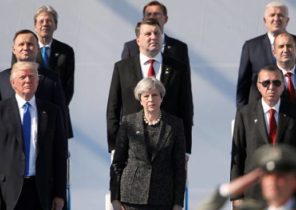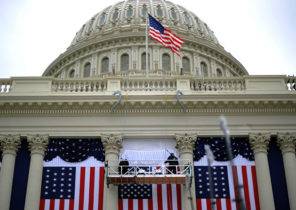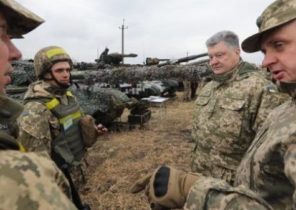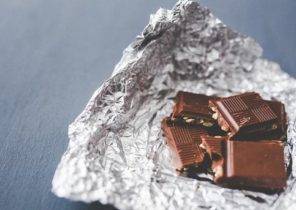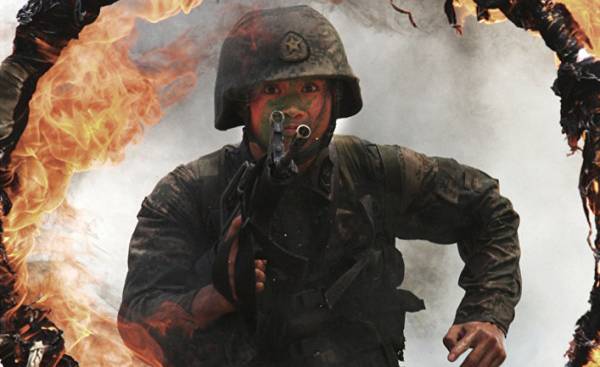
When you stake all, risk it all to lose — and in the future to expose the nation to the worst. Better to preserve resources, to shy away from the unknown. Strong, therefore, to exercise restraint for political reasons. Clausewitz notes that a weaker opponent to gain a straight military victory to achieve political victory — and only this matters. You can break the will of a powerful enemy, or to raise the price of victory so that he will decide that it is unacceptable for him. The relative lack of interest gives a chance to the weaker, but strong opponents.
So just explore the pages of Jane’s Fighting Ships, to predict the winner in a Maritime collision and to declare all other possibilities are irrational means to exclude from the calculation of human ingenuity, human fallibility and the unpredictability of war. Worse, it means the deletion policy. In 1894-1895 Japan needed was a little triumph before the Imperial China to achieve their goals. She was not required to overthrow the Qing dynasty, to occupy China or the Qing to destroy the entire fleet. Similarly, today China is not need to the nines to destroy the American troops to achieve their modest goals. It is possible that soon the ability, sufficient for the purposes of China, will be within reach of the Chinese people’s liberation army. Hell, she may already there.
Tokyo, July 31, 1894 — “In the foreseeable future, says an American expert on the defense — No reasonable Japanese military planner will not be able to submit a plan to defeat the Chinese Navy, even in the Yellow sea”. Why did he say that? Because this corresponds to the arguments of reason. Japan became a modern industrial nation only after the Meiji Restoration in 1868-1869. Less than three decades ago.
After centuries of self-imposed isolation in Japan moreplavatelei no tradition worthy of mention. Its fleet? Just a “luxury”. The Imperial Japanese Navy acquired its first battleship only 25 years ago, it was a clumsy “Stonewall” French production. The country was already pretty used ironclad “Stonewall” from a powerful naval power, the Confederate States of America.
This was the initial ad hoc attempts. Tokyo was not enough time to bring them to mind. Variegated Japanese Imperial Navy could hardly stand against the more numerous and better-funded fleet of the Qing dynasty, who, unlike his Japanese enemy had battleships. Battleships and determined the outcome of naval battles.
***
Tokyo, April 17, 1895 — Today, the governments of the Chinese and Japanese empires signed the Treaty of Shimonoseki, ending the fighting of local importance, which erupted last August. Under the terms of the Treaty the Qing government relinquish its suzerainty over Korea is inferior to Japan Formosa, the island group of Penghu and Liaodong Peninsula, and opens to Japan the new trading ports on the most favorable terms.
 © flickr.com Justin LaRosaОстров Penghu archipelago, August 2009
© flickr.com Justin LaRosaОстров Penghu archipelago, August 2009
But the importance of the Treaty goes far beyond these points. Foreign commentators believe Treaty of Shimonoseki in a sign that Japan was among the most influential Asian powers. In short, the fighting of local importance have changed the whole regional order.
How? The key point in this Sino-Japanese war was the battle of the Yalu on the West coast of Korea. Here the Imperial Japanese combined fleet met and defeated Bajenski fleet of the Qing dynasty — in defiance of the pre-war estimate of naval balance.
***
The above is a promotional analysis, but it reflects expert opinion about the military balance, issued on the eve of the Sino-Japanese war of 1894-1895, and the subsequent peaceful settlement of the conflict. Few observers believed that the Japanese Navy could win, and they have for this verdict was a good reason. However, it turned out that they were wrong. Obviously.
History is replete with such blunders. The quote in the beginning of the article belongs to the anonymous military expert and is a small comment towards the recent statements of Professor Kennedy School (and a former officer of the Pentagon) Graham Alison (Graham Allison) that US troops in Asia are invincible and will remain for an indefinite time — even in the realm of China. Only foolish people can think otherwise, said Allison. Yes, the eyes do not change. However, here are three lessons 1895 that suggest otherwise.
Lesson # 1: People invent the technique
People invent technology, and the tradeoffs that they find on their drawing boards, can have enormous consequences. Look at which side. Three basic characteristics of any warship is the speed, protection and armament. If the designers of the ship want to seriously increase any stat, they end up usually have to sacrifice one, maybe two remaining. Great weight slows down the ship, requiring the designers compensate by reducing the armor, adding more powerful and expensive engines or both. Prefer slow, clad in heavy armor and heavily armed fleet, or a fleet of maneuverable, fast, but with the lighter weapons or fewer? The naval forces constantly have to make such compromises.
In naval design, nothing comes for nothing. Give a modern example, the littoral combat ship of the US Navy (LCS class). The creators of the program LCS ordered all bets to do on a high speed for short distances. This implies not only a sports engine, but its lightweight construction and limited weapons. Indeed, one of the members of the class LCS is made entirely of aluminium, and it is not the most durable material to protect from battle damage. If more speed, you have to sacrifice protection and weapons. Any ship design is the result of many selections. Sailors may not know about the consequences of all of these elections until you are in the thick of the battle.
Now let us return to Asia of the late nineteenth century. Like many naval experts of the time, Chinese naval officials and their foreign advisers believed the battleships in the main force. They appreciated the thick armor — protection — over speed and firepower. Built in Germany battleships of China were equipped with heavier weapons than warships of the Imperial Japanese Navy, but it is slower shooting. Moreover, because of their considerable cost, only two such ships were in Belanska fleet formation that fought at the Yalu. In contrast, Japanese designers is protection and large-caliber guns of a priority did the speed, maneuverability and rate of fire.
The battle showed that the choice of designers Qing was worse. Japanese rapid-fire guns collectively unleashed on Bajenski fleet just storm fire, although each individual projectile and causing relatively small damage. The lighter ships of the Qing suffered from Japanese fire while the battleships generously handing out punishment. Command Belynskogo fleet lost at the Yalu, two-thirds of their forces. That’s what I call convincing.
Are we really so sure that the people’s liberation army (PLA) — the same young force, as once the Imperial Japanese Navy will not be able to carry out such a feat? Do Chinese designers continue to make bad choices? Fiction is a defense system, which the PLA over the past two decades has stretched along the coast of the mainland? The Chinese military tend to refute the judgment of his military capabilities. Almost all the achievements made by them over the last decade — destroyers with guided missiles, high-tech diesel submarines, aircraft carriers, came as a surprise to Western observers of China. So let’s drop the arrogance. We all know what arrogance can lead to.
Lesson # 2: People use the technique of fiction (or maybe not)
As it turned out, the leadership of the Imperial Japanese Navy were smarter than their Chinese antagonists in regard to the design features of the ships. In addition, the Japanese sailors outnumbered the opponents in nautical skill, shooting and fighting spirit. Of course, the superior weapons gives more opportunities to those who they have. But in the end war are people, not machines, and people can use your mind. A weaker opponent can be an advantage — perhaps even enough to win the battle. Succeeded in Tokyo.
If possible, weaker opponent wisely plays his bad cards, then how strong their resources can use silly. You may not send its military force, partially or completely erasing your savings. Strong prone to complacency. If you are the coolest, why bother? And yet the big powers have a bad habit of taking on different forced obligations that consume power and political power. Weak can afford the luxury of focusing on one thing at a time — because the more he just can’t do — while strong spray your hand across the map of the world. Thus the weak have a chance to turn the situation upside the head once in a particular location at a particular time stronger than the enemy.
All of this explains why marine commanders Qing is not particularly configured to collect the entire Chinese Navy in a battle with the combined fleet of Japan. China had to cope with a very large perimeter border, while Japan could focus strictly on the region of the Yellow sea — Korea and the Liaodong Peninsula, which blocked access to the sea the Chinese capital. Moreover, victory in the North has allowed Tokyo to claim the prize of Formosa and the outlying Islands in the South. If the less powerful party is opposed to more powerful, which distributed power in a thin layer, who will emerge victorious? Probably not the one who on paper can boast of a greater military power. Ergo…
Lesson # 3: Beware of soothsayers
Those who is authoritative oratory on human conflicts are often wrong. The only thing wise men can say about it with certainty is how little they know. Analysts are faced with the complexity and unpredictability of the world of human interactions that are managed by non-permanent and truly “paradoxical” logic. Fortuna is constantly spinning back and forth in this cemetery military forecasts.
In this realm to understand the enemy much harder than admit strategists like sun Tzu. Foreign military forces in peacetime reminiscent of the “black boxes”. That is, external observers only know what they look like on the outside. They can calculate and compile lists of data about range, payload and technical characteristics, as well as to speculate about combat effectiveness. But in the moment of fighting equipment will show their true potential — or not show. Similarly, no one can predict how the foreign officers and ordinary soldiers in the heat of battle will perform their duties directly on the front line.
If we borrow the definition of Karl von Clausewitz (Carl von Clausewitz), armed conflict is a test of determination and weapons produced by the latter, that is, by physical force. In the history of many examples where a weaker opponent had won. After all, this side is usually stronger than the wish to achieve their goals than the other. Political leaders refuse to endanger all of their armed forces until the value of the gain from the clashes have reached a certain level.
When you stake all, risk it all to lose — and in the future to expose the nation to the worst. Better to preserve resources, to shy away from the unknown. Strong, therefore, to exercise restraint for political reasons. Clausewitz notes that a weaker opponent to gain a straight military victory to achieve political victory — but only this is about value. You can break the will of a powerful enemy, or to raise the price of victory so that he will decide that it is unacceptable for him. The relative lack of interest gives a chance to the weaker, but strong opponents.
So just explore the pages of Jane’s Fighting Ships, to predict the winner in a Maritime collision and to declare all other possibilities are irrational means to exclude from the calculation of human ingenuity, the human propensity to error and the unpredictability of war. Worse, it means the deletion policy. In 1894-1895 Japan needed was a little triumph before the Imperial China to achieve their goals. She was not required to overthrow the Qing dynasty, to occupy China or the Qing to destroy the entire fleet. Similarly, today China is not need to the nines to destroy the American troops to achieve their modest goals. Able, sufficient for the purposes of China, will soon be within reach of the Chinese people’s liberation army. Hell, she may already there.
Treat prophecies with a fair amount of criticism.
